Christina Blanch brought together a very diverse group for the ‘Genders in Comics’ panel today at the convention. Who better to moderate this panel than the lecturer of the ‘Gender Through Comics’ free online class through Canvas Network? I asked her before the panel if we can expect another class and she said definitely.
Blanch corralled a diverse and colorful group to discuss the comic book industry. The panelist consisted of Marvel editor Jeanine Schaefer, Archania editor Rebecca Taylor, writer Paul Cornell (Doctor Who, Wolverine), Alexa Dickman (Ladies Making Comics), Grace Randolph (Supurbia) BOOM! editor Dafna Pleban, Landry Walker (Supergirl: Cosmic Adventures in the 8th Grade) and last but not least Disney magazine editor Janelle Asselin.
The first question Blanch asked the panelist was their encounters in working in gender roles – what was the first time they learned about gender roles. Dickman shared that her parents didn’t really pigeon hole her and sister to “gender roles” growing up. Her sister wanted to buy cheerleaders pom poms at a football game. Their father agreed to buy them on the condition that she doesn’t become a cheerleader because people should cheer for her. Her sister grew up to do very well in sports and get a scholarship to Penn State. “It’s foreign to me that people are being raised as gender roles,” Dickman admits. She also talked about growing up she was a enthusiastic video and cartoon fan, but she didn’t have any girlfriends to share her passion with. ““Wait a minute – there are girls that do this? This is amazing,” she said when she realized Samus was a female, after beating the game Metroid.
Walker shared an early childhood memory where his parents denied him with a baby doll and cooking supplies because “that’s what boys aren’t supposed to be playing with.” Plean felt her religious and childhood upbringing has always been trying to relate to men. There was a bit of back and fourth about how historically women have been trying identify with men and not the other way around. “We have been trained to identify with men first,” said Plean.
The topic diverted in to the change in culture that has evolved in to a more equal and friendlier environment for females. “The image is changing,” Randolph said, “and it’s changing at every convention I go to.” They also discussed the direct market and experienced they encountered or heard. There seemed to be an mutual agreement between the panelist that the staple comics to push to women is Bill Willingham’s Fables.
Everyone agreed that Comixology has made it more welcoming for female readers to browse through and discover new titles. In the Gender Through Comics class there was an assignment to read in public. She received many stories where women were approached and questioned as to why they were reading a funny book. A college professor told one her students, ” “I’m glad that you women can read those things.”
Schaefer pleaded to the crowd to pre-order books that are different and not the same “superhero” book. She also went on to talk about the misconception that if you want to read a “good comic” that involves great story and compelling characters, don’t read a “superhero” title. “There are good super hero comics out there. You just have to buy them,” Schaefer ends. The panel agreed that diversity in comics is better than it has ever been before. Cornell noted that Chris Claremont’s X-Men runs are some of the early milestones for diversity. “It’s a pleasure to get feminist and diverse notes,” Cornell stated.
The panelists were asked to talk about which male comic character was the most masculine. Paul picked Wolverine, which was also Schaefer’s choice. “(Wolverine) is a very complicated and hurt and vulnerable. They boxed him in his life a great deal,” Cornell explained. Schaefer was caught off guard and went with Hulk. “Dude has some issues. He can’t deal with them very well or just can’t cant talk about it,” she said jokingly.
One of the closing discussions was which comic book character was the most feminine? “Rogue is very strong and incredible vulnerable. She’s can’t touch anyone,” Asselin said. Dickman picked Lois Lane. “(Lois) has the mental strength, resolve and drive a women needs to survive in a male dominated world.” Jeanine Schaefer replied, “I’m going to say Sue Storm.” Paul Cornell shouts “Damn it” crowd laughter. “She’s the invisible woman, she’s the glue that holds that family together,” said Schaffer. Blanch asked Brian Michael Bendis this same question previously… and his answer was ‘Peter Parker’.
Apparently the panel was an hour long, but it went by so quickly. The panel was at capacity and seating was limited. It was so tight that I was forced to share seats with MTV Splash Page/CBR’s Brett White and Mark Waid. It was very sweet and distracting, as Waid was taking pictures and talking to Blanch from across the panel room.
Henry Barajas is the co-creator, writer and letterer for El Loco andCaptain Unikorn. He has also written and lettered short stories for two successful Kickstarter SpazDog Press projects: Unite and Take Over: Stories inspired by The Smiths and Break The Walls: Comic Stories inspired by The Pixies. He is the Newsroom Research Assistant for The Arizona Daily Star and was nominated for the Shel Dorf Blogger of the Year award for his work at The Beat. You can follow him on Twitter@HenryBarajas.


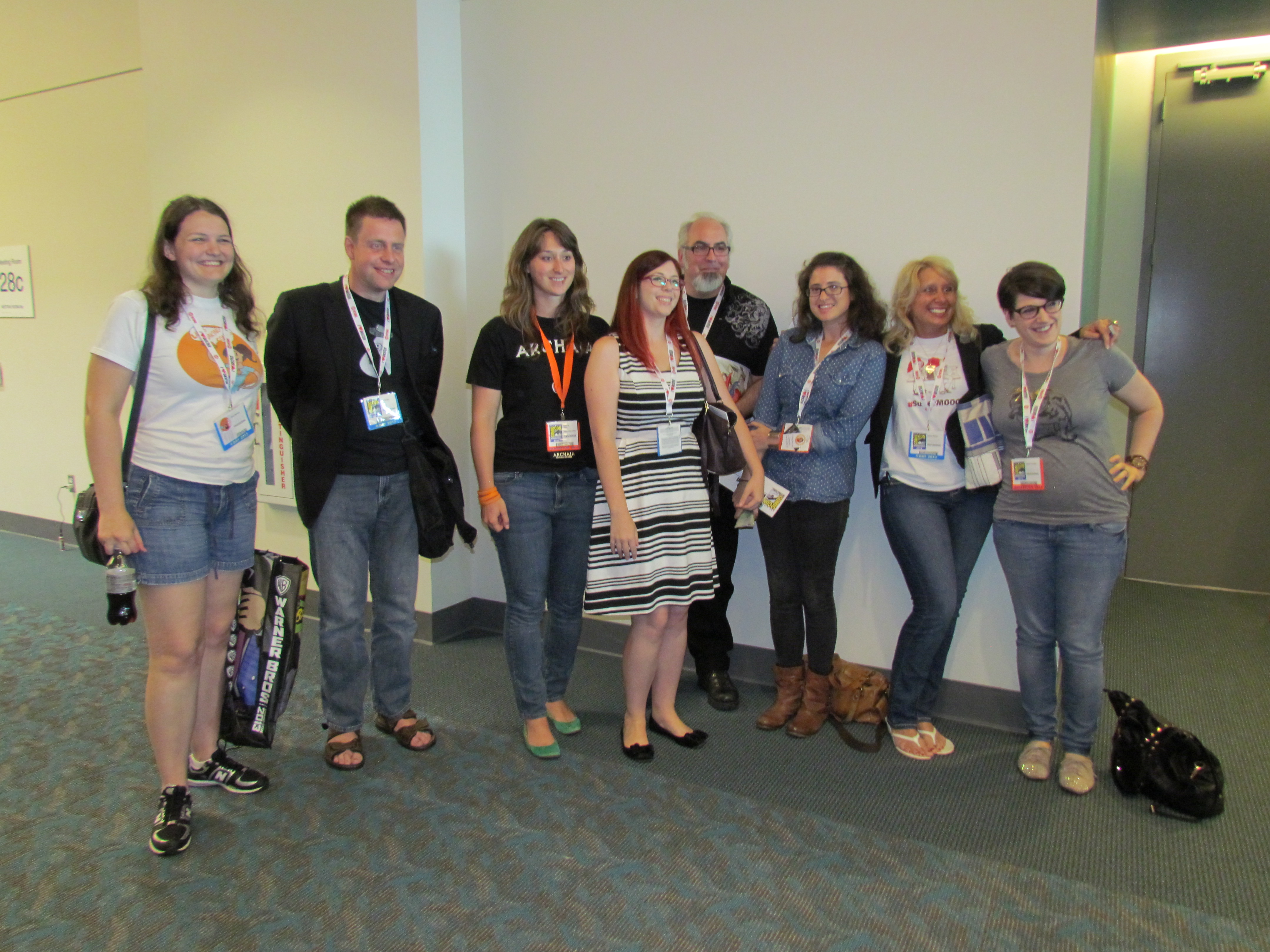
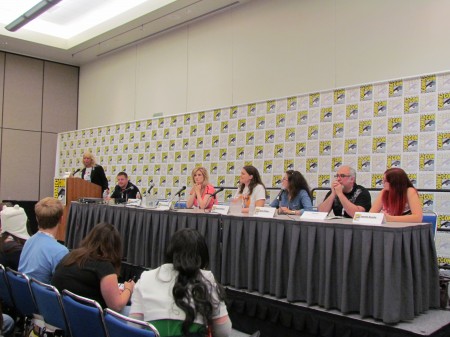
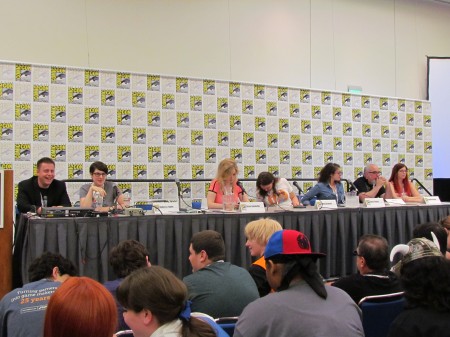
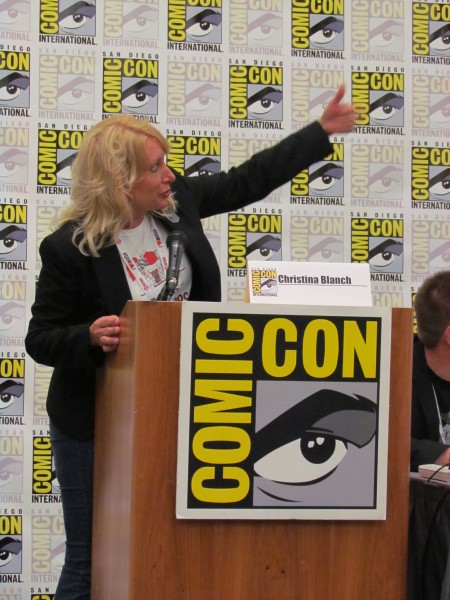
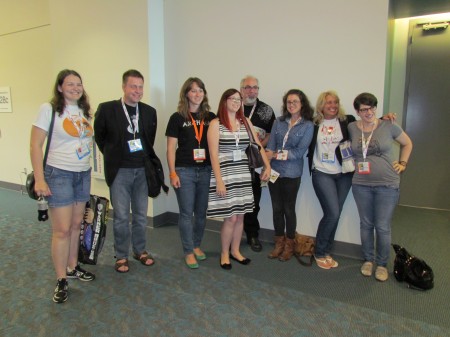

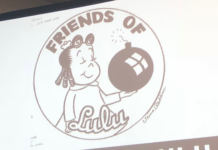
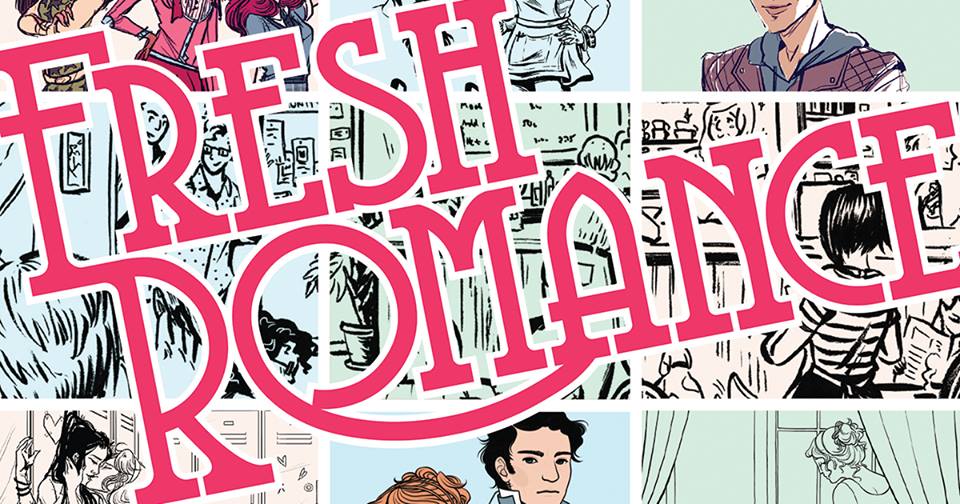
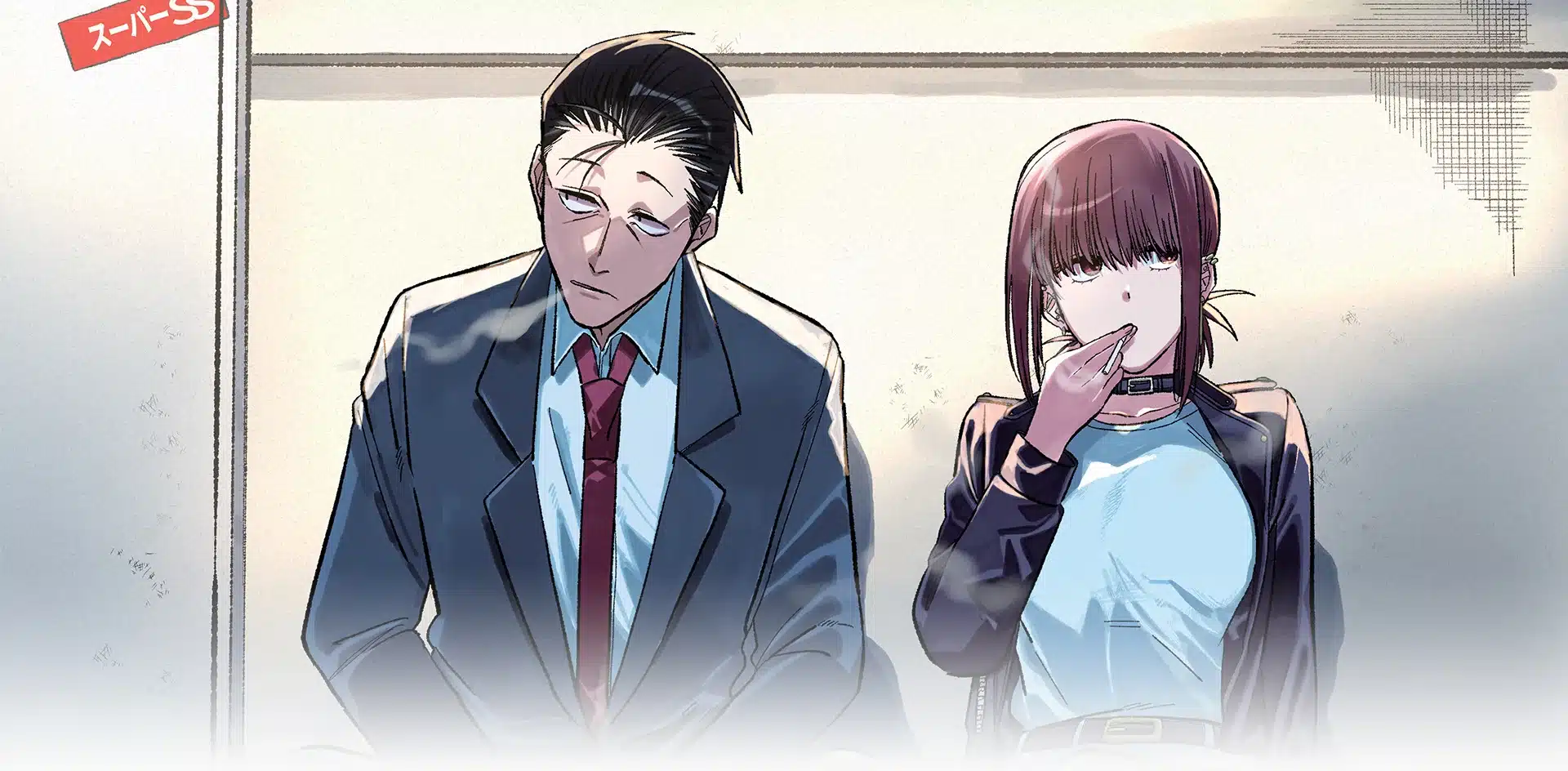

Cool write-up, great panel, small correction: I said it was great to get *feminist* not feminine, notes.
Comments are closed.